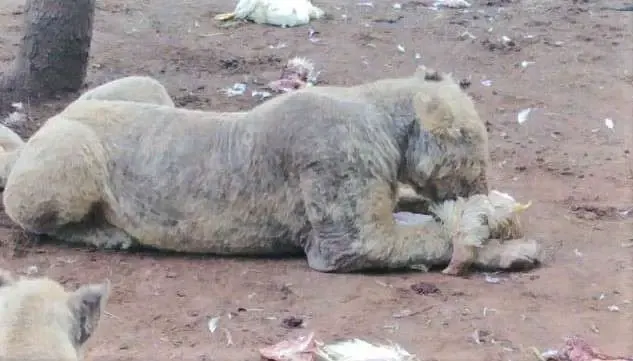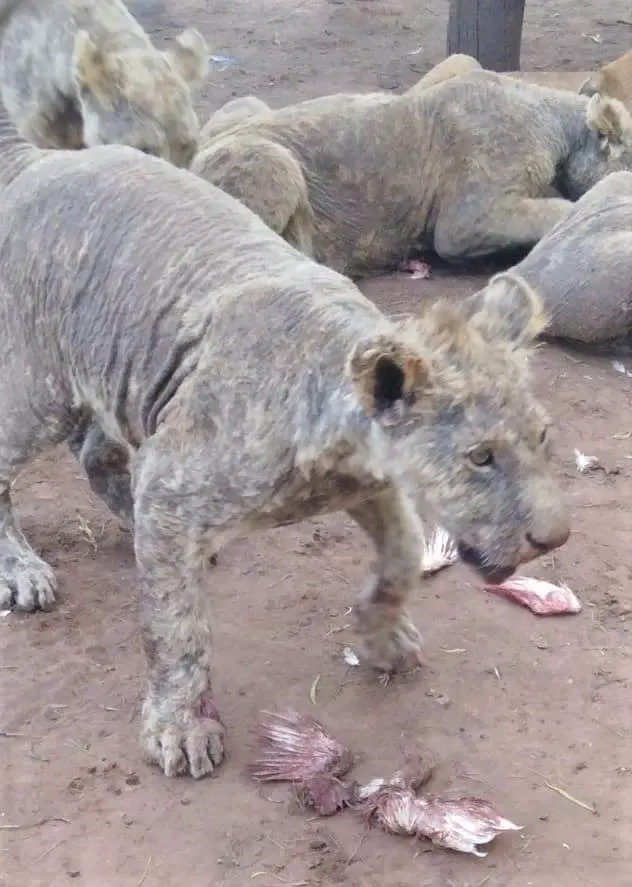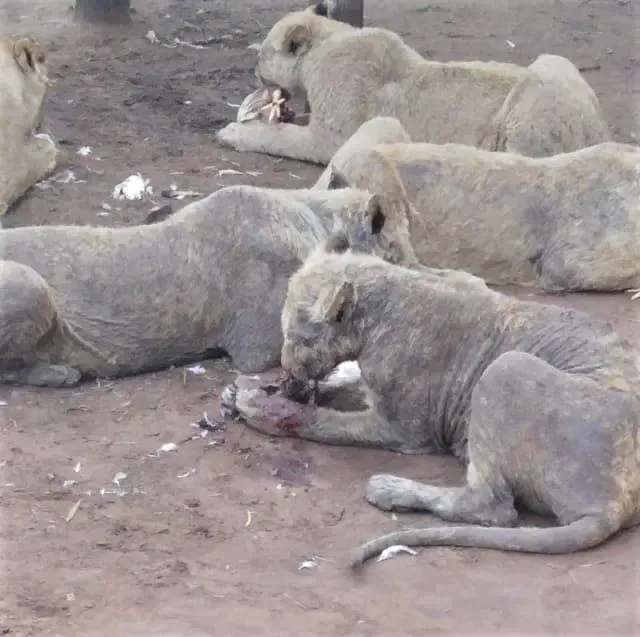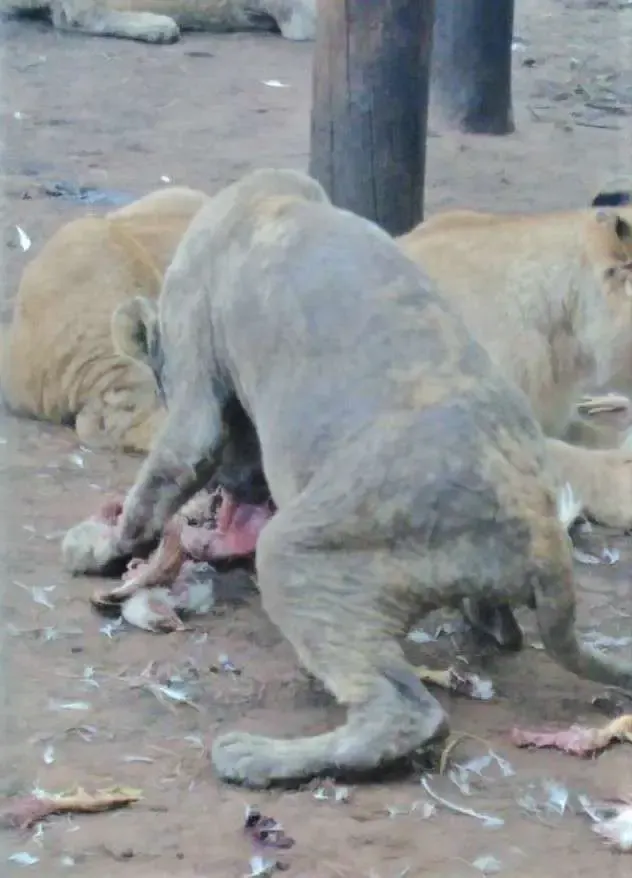In South Africa, more lions live in farms than out in the wild. Here’s what’s really happening in those so-called farms – which are actually breeding facilities.
Undercover photographs taken on the Pienika Farm, located in the North West Province, reveal how terrible conditions are for the animals.
Lions sit on dusty, barren, and dry ground, surviving on scraps of meat, covered in mange and nearly entirely hairless.
The harrowing pictures show lions in crowded locations, without access to water and shelter. Others show lion cubs who can barely even stand due to disease.

This is, sadly, not the only farm of its kind. Approximately 200 “farms” are part of this huge network designed to provide for the large cat industry.
They are what the Humane Society International (HSI) calls “snuggle scams”, as they trick people from around the world (and tourists!) into supporting them by pretending to be something they are not – a loving lion farm where the cats thrive and play.
HSI/Africa’s wildlife director, Audrey Delsink, states that the captive lion breeding market in South Africa involves nothing but exploitation from the moment those lions are born till their last second alive – and that it’s a vicious cycle.
Cubs are taken from their mother at a mere couple of days of age.
Volunteers from the United Kingdom are tricked into believing they are orphan cubs and therefore help to hand-raise them.

Then, the lions grow big and become dangerous – and they are slaughtered.
Their bones are sent to different Asian countries, where they are used for traditional medicinal purposes.
Others are simply sold to mainly American trophy hunters, who use them for canned hunts and kill them for sport within an enclosed location.
Today, less than 3,000 lions live in the South African wilds. These breeding farms have over twice the amount of lions.
In Pienika Farm, there are more than 100 of them, and now that the facility is facing legal charges, the adult lions’ futures hang into balance.

Luckily, the sick cubs have been taken to a veterinarian and will likely receive the care they need – but for the other lions, their lives are at stake.
This is because they were hand-raised and bred in captivity, so they do not have the skills needed to survive.

If you’d like to help, you can sign a petition to ban lion trophy imports to the United States, or a petition to ban lion farms in South Africa.
